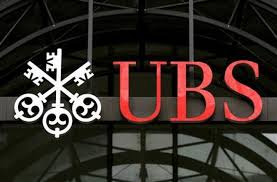Would the « sovereign money » system (on which we’ll vote on June 10) have allowed for a better handling of the UBS crisis in 2008? While some argue that it would have, this is not the case. The problem did not come from money creation by the bank, and the authorities would have had to step in anyway.
The multiple activities of UBS (and other banks)
In our everyday life we essentially deal with standard commercial banks where we have our deposit accounts, put our savings, and borrow for our mortgages, for instance. These banks create fiduciary money by granting loans: when my bank grants me a loan, it deposits the amount on my account and I become both its creditor and its debtor. It is precisely this mechanism that the advocates of the sovereign money system want to end, despite the fact that it is tightly regulated.
But the commercial bank is only one of the many facets of financial intermediations. Banks are far from a homogeneous block. In addition to commercial banking, the activities include wealth management, trade finance, investment banking, among others. Note that these activities are not based on the creation of fiduciary money. Some banks specialize in specific activities, while others including UBS offer a broader range of services.
As a large bank such as UBS covers many activities it is important to clearly identify where problems occurred in 2008. It was in the investment bank which had invested in toxic US assets. This unfortunate investment had not connection with the fiduciary money creation on which the sovereign money proposal focuses.
A public intervention would have been necessary anyway
What would have happened if the sovereign money system had been in place in 2008? Retail deposits would have been in a separate subsidiary of UBS which would have invested them entirely at the Swiss National Bank. The other part of the bank would have covered the remaining activities, including investment banking and lending to Swiss firms and households.
The loss on US assets held by the investment bank would have put into question the survival of thus second part of the bank. This would have created substantial problems for mortgage finance and lending to firms in Switzerland, with the risk of a major recession. The authorities would then have had to step in as part of their mandate to preserve financial stability. The form of this intervention would likely have been very similar to what actually happened.
Things have changed since 2008
It is important to remember that financial regulation has substantially evolved since 2008 and the authorities have clearly pushed banks to increase their ability to absorb losses. For instance the Swiss National Bank is not shy to put pressure on the banks. This unsurprisingly does not make them happy, as the case of Crédit Suisse in 2012 clearly illustrated.
In particular the structure of systemic banks has evolved with the aim to be able to insulate their activities in Switzerland from problems stemming from abroad. Is it enough? One can reasonably debate this and argue that an explicit and immediate splitting of these two fields of activities should have been put in place. Maybe, but such a split is not at all what the sovereign money proposal is about.
